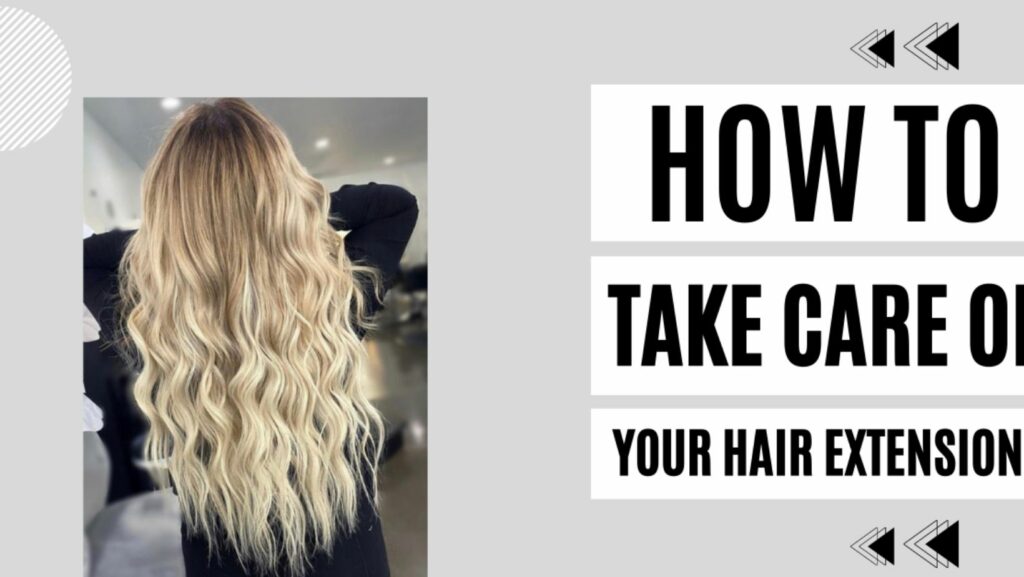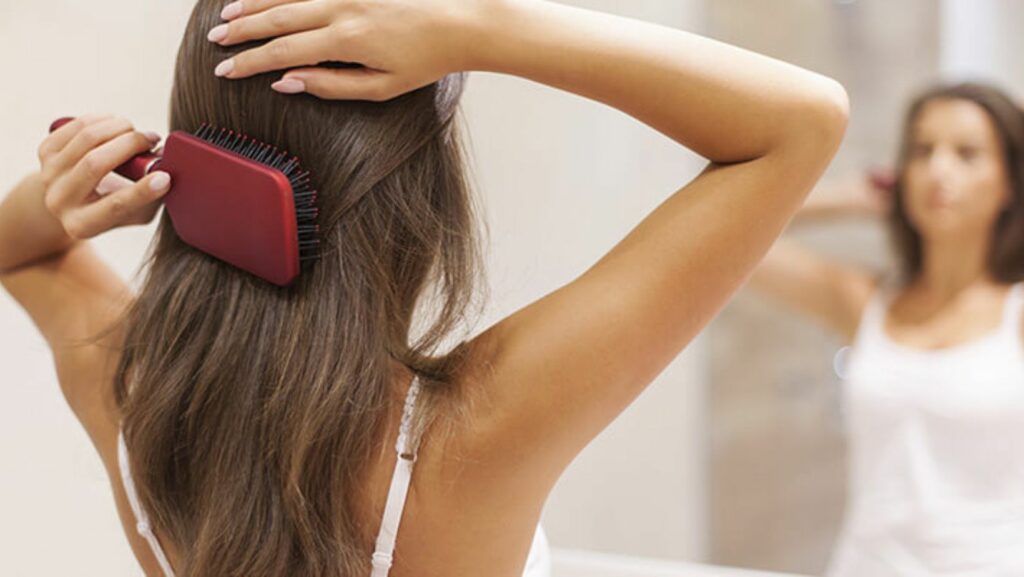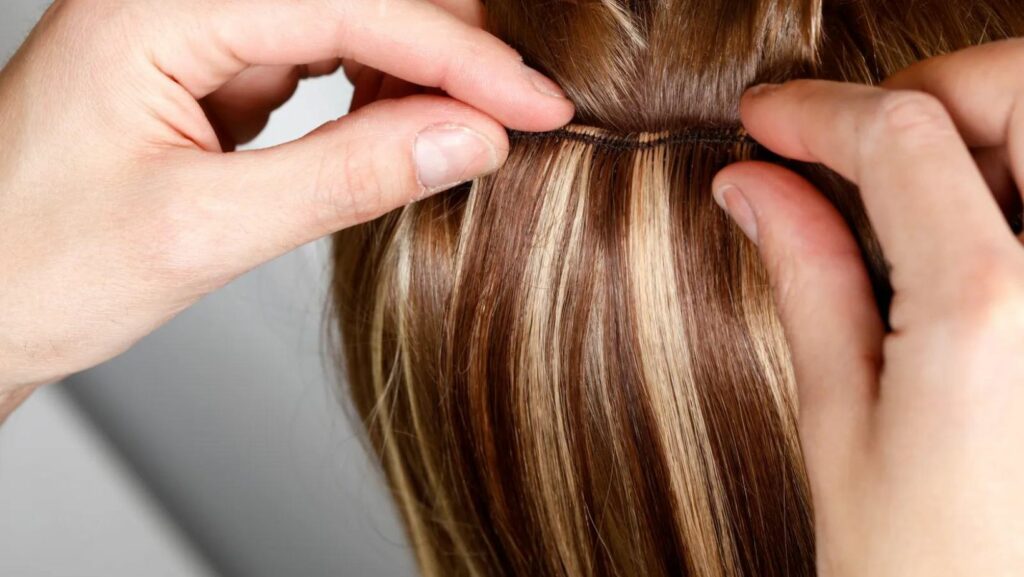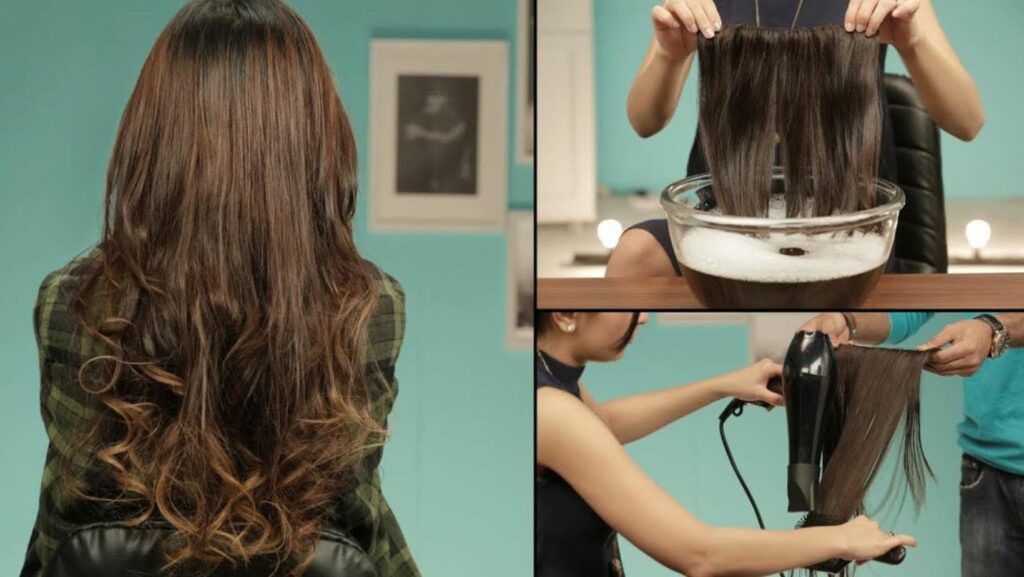How to Care for Hair Extensions
As a seasoned expert in hair care, I’ll share valuable insights on how to care for hair extensions. Hair extensions can be a fantastic way to add length and volume to your hair, but they require proper maintenance to keep them looking their best. How to care for hair extensions? Whether you have clip-ins, tape-ins, or sewn-in extensions, the care routine is crucial for their longevity and overall appearance.

One essential aspect of caring for hair extensions is gentle detangling. Use a loop brush or a wide-tooth comb to prevent tugging and pulling on the extension bonds. Start detangling from the ends and work your way up towards the roots, ensuring you remove any knots without causing damage.
Additionally, regular washing is key to keeping your hair extensions clean and fresh. However, it’s important to use sulfate-free shampoo and conditioner to avoid stripping the extensions of their natural oils. When washing, focus on the mid-lengths to ends while being gentle around the attachment points. Proper drying techniques are also crucial; gently pat dry with a towel and avoid rubbing vigorously to prevent tangling.
Types of Hair Extensions
When it comes to HAIR EXTENSIONS, there are various types available in the market catering to different needs and preferences. Let’s delve into some popular options:

1. Clip-In Hair Extensions
- These are one of the most common types.
- Easy to attach and remove.
- Great for adding length or volume temporarily.
2. Tape-In Hair Extensions
- Thin sections of hair attached using double-sided tape.
- Blend seamlessly with natural hair.
- Long-lasting if maintained properly.
3. Sew-In Hair Extensions (Weaves)
- Applied by braiding natural hair into cornrows and sewing the extensions onto the braids.
- Provide a more secure option for longer wear.
4. Fusion (Pre-Bonded) Hair Extensions
- Individual strands fused to natural hair using adhesive like keratin bonds.
- Offer a natural look and feel but require professional application and removal for best results.
Each type of HAIR EXTENSION has its own set of pros and cons, so it’s essential to consider factors like your lifestyle, budget, desired look, and maintenance routine before choosing the right one for you. Consulting with a professional stylist can also help determine which type would suit you best based on your hair texture and goals.
Daily Care Tips
Taking care of your hair extensions is essential to maintain their quality and ensure they look fabulous for longer. Here are some daily care tips to keep in mind:

- Brush Gently: Use a soft-bristle brush or a loop brush to detangle your hair extensions gently. Start from the ends and work your way up to prevent unnecessary pulling and breakage.
- Avoid Heat Damage: Limit the use of heat styling tools such as straighteners and curling irons on your extensions. If you must use them, apply a heat protectant spray beforehand.
- Protect at Night: Before going to bed, braid or tie your hair extensions in a loose ponytail to prevent tangling while you sleep. Consider using a silk pillowcase to reduce friction.
- Use Sulfate-Free Products: Opt for sulfate-free shampoos and conditioners when washing your hair extensions. Sulfates can strip the hair of its natural oils, leading to dryness.
- Regular Maintenance: Schedule regular maintenance appointments with your stylist to check the condition of your extensions, trim any split ends, and ensure proper blending with your natural hair.
Remember, investing time in caring for your hair extensions will pay off in the long run by keeping them looking luscious and healthy. Incorporate these tips into your daily routine to maintain beautiful locks that turn heads wherever you go.
Reflecting on the essential tips and practices for caring for hair extensions, it’s evident that proper maintenance is key to ensuring their longevity and keeping them looking flawless. By following a regular care routine and using suitable products, you can enjoy your hair extensions for an extended period while maintaining their natural appearance.
Incorporating gentle handling techniques, such as detangling with a wide-tooth comb and avoiding excessive heat styling, will help prevent damage and tangling. Additionally, utilizing hydrating treatments and minimizing exposure to harsh chemicals will contribute to the overall health of your extensions.

